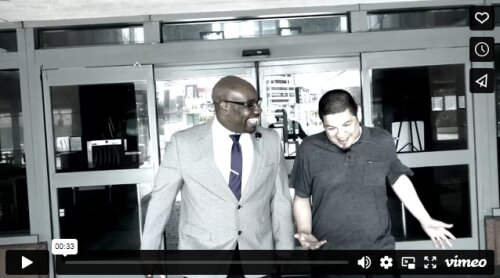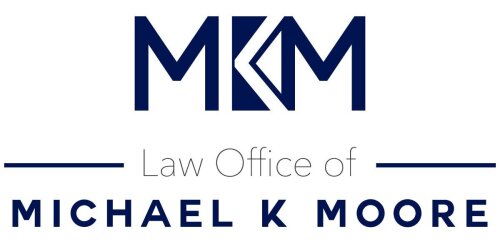Best Bankruptcy Lawyers in California
Share your needs with us, get contacted by law firms.
Free. Takes 2 min.
Or refine your search by selecting a city:
List of the best lawyers in California, United States
About Bankruptcy Law in California, United States
Bankruptcy is a legal process that allows individuals or businesses in California who can no longer meet their financial obligations to seek relief from some or all of their debts. It is governed by federal law, specifically the United States Bankruptcy Code, but state laws play a crucial role in determining the types of assets you may keep during bankruptcy. In California, bankruptcy provides a way for people to get a fresh financial start when burdened by unmanageable debt. There are several types of bankruptcy filings, with Chapter 7 (liquidation) and Chapter 13 (reorganization) being the most common options for individuals.
Why You May Need a Lawyer
Bankruptcy law can be complex, and there are many technical requirements to follow. You may need a lawyer if:
- You are facing foreclosure on your home or repossession of your car and want to know your rights and options.
- Creditors are suing you or garnishing your wages and you need immediate relief from collections.
- Your income and property situation is complicated and you are unsure which bankruptcy chapter applies to you.
- You want to protect certain property, such as a home, car, or retirement accounts, and need help understanding exemptions.
- You have previously filed for bankruptcy and are unsure of your eligibility to file again.
- You are a small business owner whose business is struggling with debt.
- You want reassurance that you are correctly disclosing assets and debts, as mistakes can lead to a dismissal or allegations of fraud.
An experienced bankruptcy attorney can guide you through the process, help you make strategic decisions, and ensure all documents are completed accurately and filed on time.
Local Laws Overview
While bankruptcy is governed primarily by federal law, California has specific statutes and exemptions relevant to those filing for bankruptcy in the state. Key aspects include:
- Exemptions: California offers two sets of exemptions (System 1 and System 2), which you must choose between when filing. Exemptions determine what property you can keep, such as home equity, vehicles, or retirement accounts.
- Homestead Exemption: California's homestead exemption can protect a portion of equity in your primary residence, with the amount varying based on the county median sale price and capped by state law.
- Community Property Rules: California is a community property state, meaning most property or debts acquired during marriage are treated as jointly owned. This can impact both spouses in bankruptcy cases.
- Bankruptcy Means Test: To qualify for Chapter 7 bankruptcy, you must pass a means test comparing your income to the California median for your household size. If you do not qualify, Chapter 13 may be an option.
- Automatic Stay: Once you file, an automatic stay goes into effect, halting creditor collection actions, foreclosures, and lawsuits.
- Mandatory Credit Counseling: California filers must complete credit counseling from an approved agency before filing and a debtor education course before discharge.
Frequently Asked Questions
What types of bankruptcy are available to individuals in California?
Most individuals file under Chapter 7 or Chapter 13. Chapter 7 involves liquidation of non-exempt assets to pay creditors, while Chapter 13 allows for a repayment plan over three to five years to catch up on debts.
How does filing for bankruptcy affect my credit score?
Bankruptcy will negatively impact your credit score and can remain on your credit report for up to 10 years for Chapter 7 and 7 years for Chapter 13. However, many people start rebuilding credit shortly after discharge.
Can I keep my house or car if I file for bankruptcy in California?
You may be able to keep your home or car if the equity is covered under California's exemption laws and you continue making payments. Chapter 13 may help you catch up on missed payments.
Will bankruptcy eliminate all my debts?
Bankruptcy will discharge many types of unsecured debts, like credit card balances and medical bills. However, some debts, such as student loans, child support, most tax debts, and certain court fines, are not dischargeable.
Is my spouse affected if I file for bankruptcy in California?
If you file individually, only your debts and your share of community property are generally affected. However, because California is a community property state, your filing could impact jointly owned assets and debts.
What is the "means test" and do I have to take it?
The means test determines if you qualify for Chapter 7 bankruptcy. It compares your income to California's median for your household size. If you do not pass, you may need to file under Chapter 13.
How long does the bankruptcy process take in California?
A Chapter 7 case usually takes about four to six months. Chapter 13 cases span three to five years, depending on your repayment plan.
Can creditors continue to contact me after I file for bankruptcy?
Once you file, the court issues an automatic stay that prohibits most creditors from attempting to collect debts or contact you regarding your debts.
What property is exempt in a California bankruptcy?
California allows you to choose between two sets of state-specific exemptions which protect certain property, such as a modest amount of home equity, vehicles, personal items, retirement accounts, and tools of your trade.
Do I need an attorney to file for bankruptcy in California?
While it is possible to file on your own, bankruptcy law is complex. Mistakes can lead to losing property, denial of discharge, or even allegations of fraud. Most people find it helpful to consult a bankruptcy attorney for guidance.
Additional Resources
There are several organizations and governmental bodies that can help with bankruptcy questions in California:
- United States Bankruptcy Court for the Central, Northern, Eastern, and Southern Districts of California
- California Courts Self Help Center
- Legal Aid organizations such as Legal Aid Foundation of Los Angeles, Bay Area Legal Aid, and others
- The National Association of Consumer Bankruptcy Attorneys
- Consumer Financial Protection Bureau (CFPB) for information on debt and bankruptcy
- California State Bar for lawyer referrals and public legal information
Next Steps
If you believe bankruptcy may be the right solution for your financial situation, consider the following steps:
- Gather detailed records of your debts, assets, income, and expenses to understand your financial situation.
- Research the differences between Chapter 7 and Chapter 13 bankruptcy and how California exemptions apply to your case.
- Complete a credit counseling session from a court-approved provider.
- Schedule a consultation with a qualified bankruptcy attorney to discuss your case and receive personalized advice.
- Consult free or low-cost legal aid services if you cannot afford private representation.
- Read relevant resources, guides, and FAQs on official government and legal aid websites.
- If you decide to proceed, your attorney will explain the required documents, filing fees, court appearances, and what to expect at each stage of the process.
Bankruptcy is a significant decision and the process can have long-lasting effects on your finances. Taking the time to seek professional legal advice and accurately understand your options will help you make the best choice for your future.
Lawzana helps you find the best lawyers and law firms in California through a curated and pre-screened list of qualified legal professionals. Our platform offers rankings and detailed profiles of attorneys and law firms, allowing you to compare based on practice areas, including Bankruptcy, experience, and client feedback.
Each profile includes a description of the firm's areas of practice, client reviews, team members and partners, year of establishment, spoken languages, office locations, contact information, social media presence, and any published articles or resources. Most firms on our platform speak English and are experienced in both local and international legal matters.
Get a quote from top-rated law firms in California, United States — quickly, securely, and without unnecessary hassle.
Disclaimer:
The information provided on this page is for general informational purposes only and does not constitute legal advice. While we strive to ensure the accuracy and relevance of the content, legal information may change over time, and interpretations of the law can vary. You should always consult with a qualified legal professional for advice specific to your situation.
We disclaim all liability for actions taken or not taken based on the content of this page. If you believe any information is incorrect or outdated, please contact us, and we will review and update it where appropriate.
Browse bankruptcy law firms by city in California
Refine your search by selecting a city.















